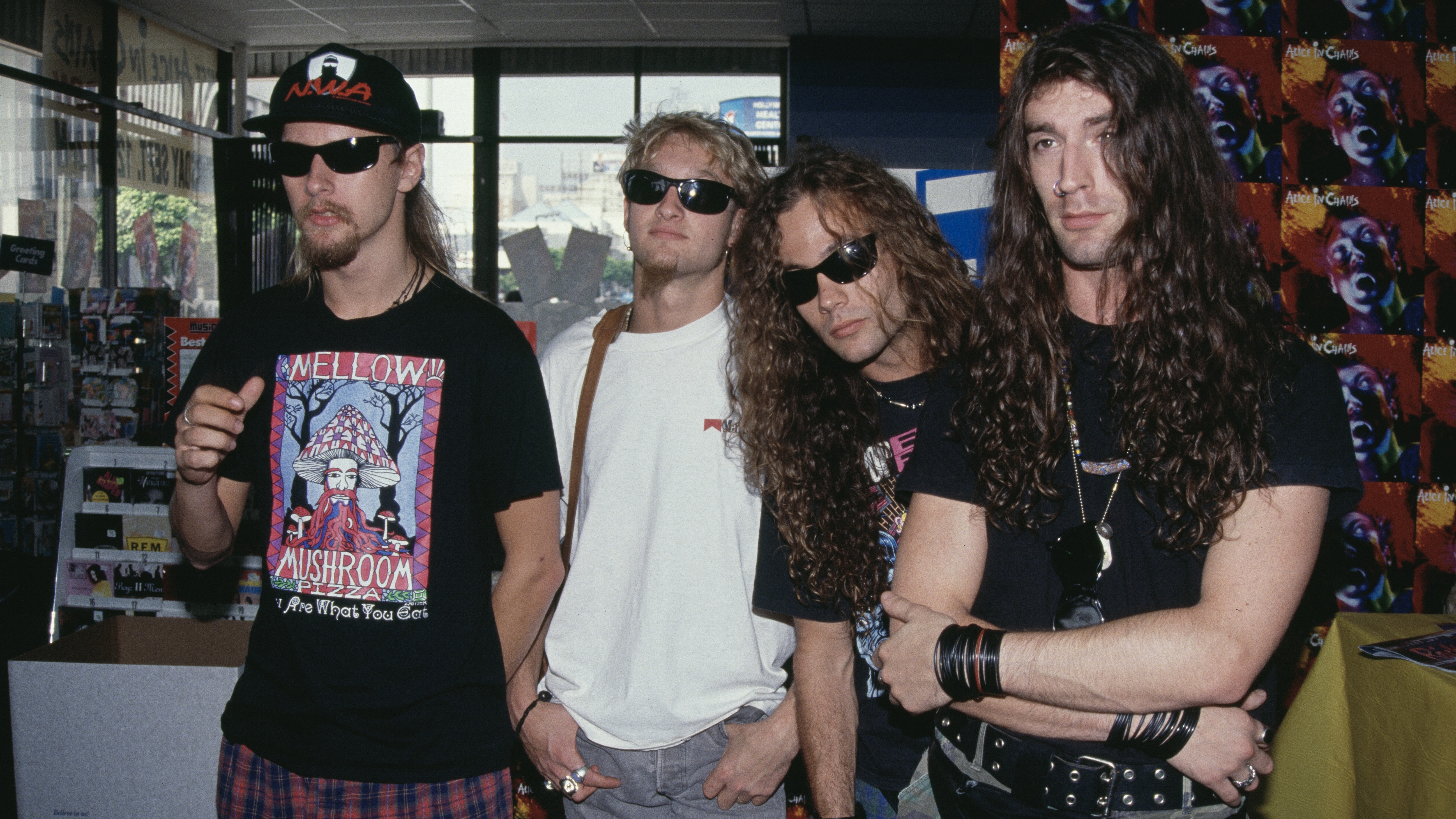"I woke up to an assault rifle on my nose!" Jerry Cantrell on the day armed police raided Alice In Chains' rehearsal studio
To Jerry Cantrell, Alice In Chains's rehearsal space was party central, but he didn't expect a SWAT team to smash into the studio in search of drugs

Select the newsletters you’d like to receive. Then, add your email to sign up.
You are now subscribed
Your newsletter sign-up was successful
Want to add more newsletters?

Every Friday
Louder
Louder’s weekly newsletter is jam-packed with the team’s personal highlights from the last seven days, including features, breaking news, reviews and tons of juicy exclusives from the world of alternative music.

Every Friday
Classic Rock
The Classic Rock newsletter is an essential read for the discerning rock fan. Every week we bring you the news, reviews and the very best features and interviews from our extensive archive. Written by rock fans for rock fans.

Every Friday
Metal Hammer
For the last four decades Metal Hammer has been the world’s greatest metal magazine. Created by metalheads for metalheads, ‘Hammer takes you behind the scenes, closer to the action, and nearer to the bands that you love the most.

Every Friday
Prog
The Prog newsletter brings you the very best of Prog Magazine and our website, every Friday. We'll deliver you the very latest news from the Prog universe, informative features and archive material from Prog’s impressive vault.
In 1987, after being kicked out of his family home, Jerry Cantrell moved into Seattle rehearsal complex The Music Bank at the invitation of his friend Layne Staley. A 24-hour facility, frequented by hundreds of local musicians, The Music Bank, in Cantrell's eyes, was "fucking awesome."
"It was like boystown, y’know what I mean?" he recalled to music writer Tom Doyle. "Nobody was watching you and you could do whatever the fuck you wanted. There was always a band playing, there was always chicks around. Somebody always had some weed or some beer."
For the Seattle music community, The Music Bank was party central. But the young musicians didn't realise that the Ballard Bridge complex also housed Washington State's largest marijuana growing operation, a fact that the members of the newly-formed Alice In Chains only became aware of when the facility was raided by armed police.
"We were all there," Cantrell told Planet Rock magazine in 2018. "I literally woke up to a fucking assault-style rifle on my nose. Like, 'Get the fuck up.' A SWAT team took over the whole place. We didn’t know what the fuck was going on.
"It was in this big long wharf building that looked pretty much just empty. On the other end there was a paint company, so they used a lot of electricity shaking paint. On our end was a rehearsal place running 24 hours a day. So a lot of energy is getting used. Nobody’s thinking that it’s getting used for the big space in the middle that you never see anybody going in and out of. But it turns out there was a fucking forest of weed right through the wall. I can’t tell you how many times we’d been jonesing for some bud and all we had to do was break through the fucking dry wall!"
"The cops busted in and seized everything."
For Alice In Chains, the timing of the raid was somewhat unfortunate, as they had studio time booked the following day to record their first demo tape. Fortunately, the law enforcement officers were sympathetic to their plight.
"We kept telling them this sad tale: 'We have to get our gear out of here'." Cantrell remembered. "They let us take our gear outside and we slept on it. We got picked up in the morning, made the demo and the rest is history, as they say."
"Their first demo probably owed a little more to Poison than the huge monster they became," Soundgarden guitarist Kim Thayil is quoted as saying in grunge oral history Everybody Loves Our Town. "That really changed when they heard us [Laughs]."
The latest news, features and interviews direct to your inbox, from the global home of alternative music.

A music writer since 1993, formerly Editor of Kerrang! and Planet Rock magazine (RIP), Paul Brannigan is a Contributing Editor to Louder. Having previously written books on Lemmy, Dave Grohl (the Sunday Times best-seller This Is A Call) and Metallica (Birth School Metallica Death, co-authored with Ian Winwood), his Eddie Van Halen biography (Eruption in the UK, Unchained in the US) emerged in 2021. He has written for Rolling Stone, Mojo and Q, hung out with Fugazi at Dischord House, flown on Ozzy Osbourne's private jet, played Angus Young's Gibson SG, and interviewed everyone from Aerosmith and Beastie Boys to Young Gods and ZZ Top. Born in the North of Ireland, Brannigan lives in North London and supports The Arsenal.
